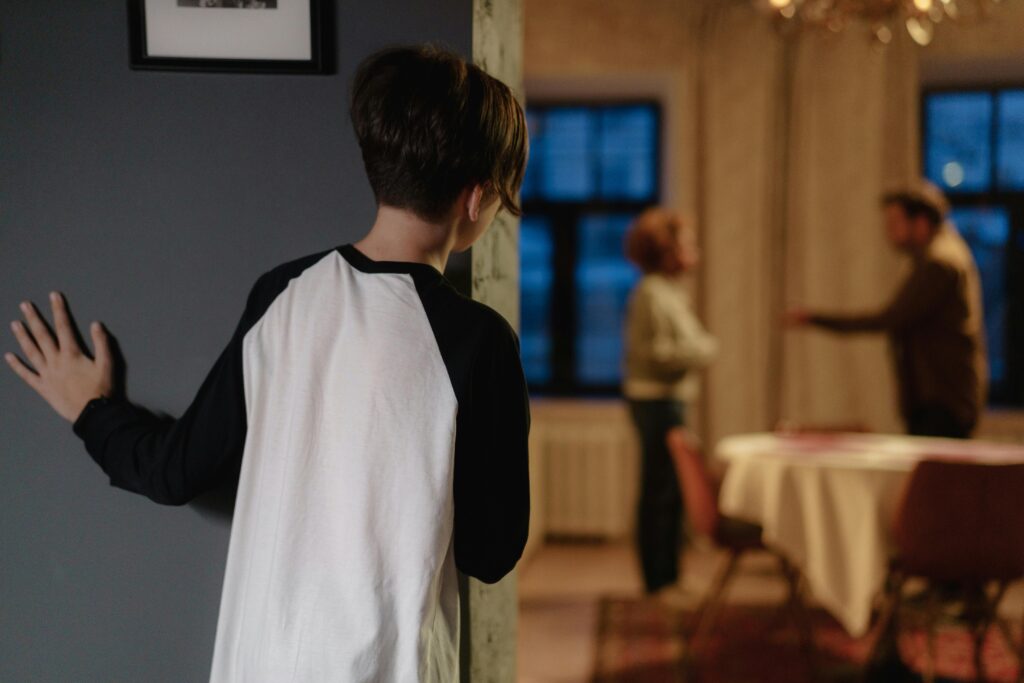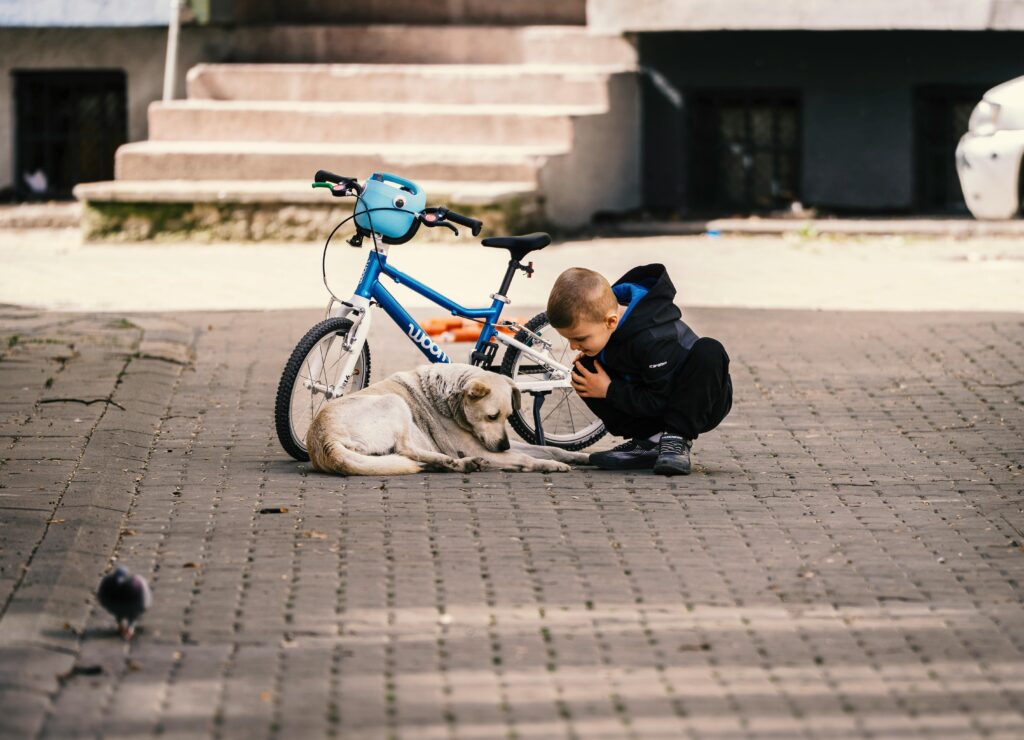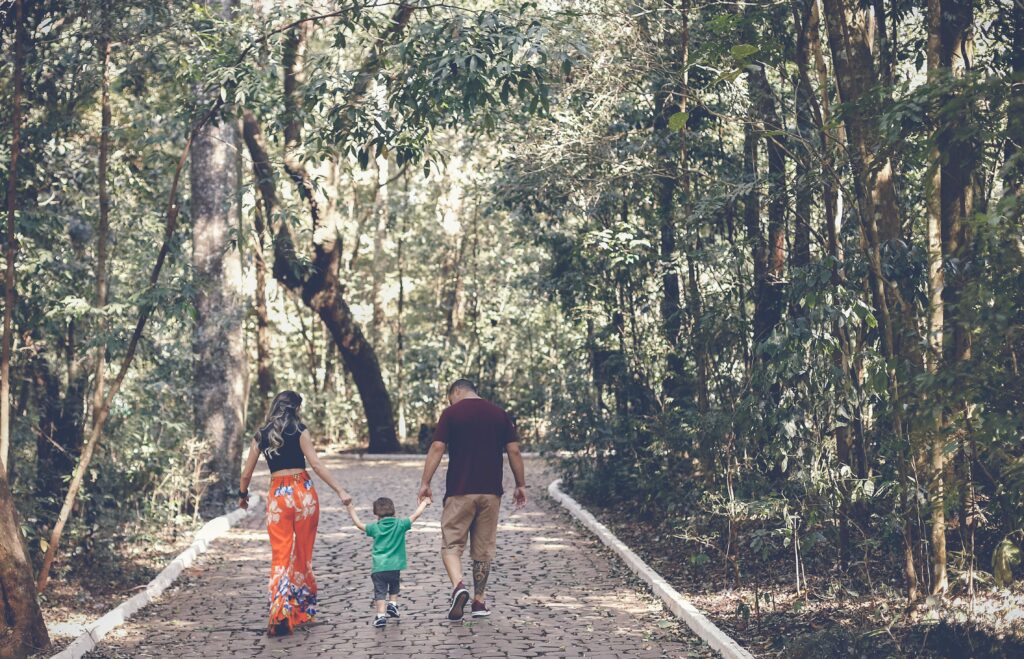We’ve all heard that children are like sponges, silently absorbing everything around them. But how often do we truly reflect on what that really means?
This blog is a reflection on that thought. From my personal experiences, I’ve seen how people often behave carelessly in front of children. Even parents, at times, seem unaware of how their actions may affect their child. We rarely stop to think about what children are observing, how our tone, words, and reactions shape them. Yet, when a child says or does something inappropriate, we’re quick to ask, “Where did they learn all this from?” Once, I saw two neighbors fighting and shouting at each other, using harsh and inappropriate words and all of this happened in front of their small children, who stood nearby, scared and shocked.

It made me wonder how unaware adults can sometimes be about the silent damage they might be causing to their children.
The truth is, it’s not just parents who influence children, it’s everyone around them. Children are not born with behaviors; they learn from what they see, hear, and experience. Whether you’re a parent, sibling, teacher, relative, or even a stranger, your actions matter.
One such realization struck me during a visit to my village. I have three young cousins there – one is eight, another is six, and the youngest is just two years old. During our short exploration of the village, we came across a stray dog. He looked thin and hungry, and there was fear in his eyes. I felt an urge to help, so I walked back to our car and brought some dog-friendly biscuits I had packed just in case I met any stray animals.
As I slowly approached the dog and offered him food, he hesitated but eventually came closer. I didn’t force him, I just stayed gentle and patient, letting him come to me when he felt safe. My cousins, who were watching from a distance, were shocked. They had never seen anyone treat stray animals with kindness. They had only seen elders throw stones or shoo them away.
As the dog, whom I later named Tofu began to trust me, my cousins continued to observe. But initially, they reacted how they were used to: picking up small stones and throwing them toward Tofu. I stopped them and asked, “Why are you doing this?” Deep down, I knew the answer, they didn’t learn this behavior on their own. They had seen others do it.
Later, when Tofu showed up again, I fed him, pet him, and our bond slowly grew. My cousins became curious and started asking questions like, “Why do you feed him?” and “Why don’t you hit him like others do?” I explained to them in the simplest way possible that he’s hungry, scared, and needs love just like we all do. I reminded them how it feels when someone yells or hits us and how we feel better when someone is kind to us.
With time, something changed. They began coming closer to Tofu. One of them even went into the kitchen, brought out a slice of bread, and offered it to him. From being scared of him to calling out his name “Tofu! Tofu!” and treating him like a friend, they had transformed. And I hadn’t forced them. They simply observed, absorbed, and followed what they saw.

Another moment that struck me was during a night walk with my parents on our building’s terrace. A little boy, around three years old, was playing nearby with a toy horse on wheels. He had tied a string to its neck and was pulling it behind him. Every few steps, he would stop, turn around, and hit the toy horse with a stick he was holding and then continue walking.
I was stunned. Who taught him this? No one would have sat down and told him to do it. But perhaps he had seen it somewhere maybe a horse being beaten on TV or during travel. That small act, so casually repeated, said so much. It showed how even the tiniest details from their environment can become part of a child’s behavior.
Even I have a memory of imitating something wrong as a child. Once, I was riding my friend’s large toy bike inside the house. While turning toward the bedroom, I said a bad word, one I had heard a man say on the road days earlier when he nearly crashed into another bike. I didn’t even know what it meant, but I repeated it. My mother was shocked. Looking back, it’s a bit funny, but also eye-opening. Children notice everything.
Thankfully, not all imitations are negative. I remember two moments that shaped my mindset positively. Once, while walking with my father, we noticed a lady struggling to move her scooter in a tightly packed parking area. Without a second thought, my father went over to help her. I stood there watching him as he offered his help. That small act of kindness stayed with me and he taught me how to help others without saying a word.
Another time, during a journey, I noticed a girl sitting in front of us with a packet of chocolate biscuits. I quietly wished I could have one but didn’t say anything. Moments later, she turned and offered me some biscuits. That small gesture giving without being asked taught me the beauty of generosity.
From all these experiences, I hope you’ve started reflecting on how deeply children absorb what they see around them. They don’t just mimic behavior, they carry it with them. If we truly want a better generation, one that is thoughtful, kind, disciplined, and responsible, then we must become better ourselves.

Even if you aren’t a parent, your actions still matter. My cousins, whom I rarely meet, were still impacted by my actions during those two days.
And to parents, remember, you are your child’s biggest influence. If you want them to eat healthy, be disciplined, speak well, and act with kindness, then you must be the first example of that.
As they learn from our actions, the future generation will become a mirror of us. So it’s on us to decide what kind of reflection are we leaving behind?
Let’s not be careless examples. Let’s be inspiring ones. This awareness, and the actions that follow, will be our first real step toward building a better future.
“In the end, I would just like to say – you may not notice, but in your every small act, a future is being shaped.
“Now, Are you ready to raise not just your own children, but a better generation through your actions?
If this blog spoke to you, you can read this one too – Raise Your Voice Even When No One Listens.
I also engage with like-minded people on Threads. You can connect with me over there.
Really never thought of that. Well i knew that children mimics thing that they see happening around them, but I never reflected on it. It really made me to think twice about my actions and behaviour in public. It may have influenced someone. I will try my best to correct my actions more so it don’t affect anyone in wrong way.
Really you have a great observation.
Keep going👍👍
Thank you for your kind words and I really appreciate how you are willing to be aware about your actions, that was the main purpose of this blog, to make people reflect on their actions in front of children and I think the purpose of this blog is fulfilling itself.
Stay connected for more such reflections.